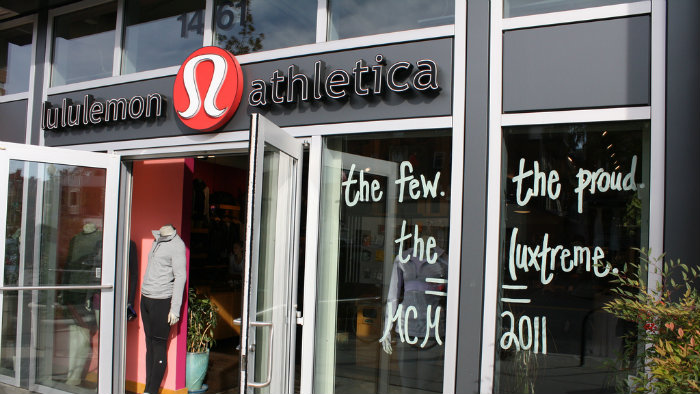Everyone was so giddy June 16 on the Amazon.com, Inc. (NASDAQ:AMZN) M&A news that one analyst suggested Lululemon Athletica Inc. (NASDAQ:LULU) might be Jeff Bezos’s next target.
Naturally, like Pavlov’s dogs, the news gave Lululemon’s share price a bit of a charge. Unfortunately, for Lululemon shareholders, the excitement was short-lived.
While anything is possible, it’s unlikely that Amazon is going to buy Lululemon. Here’s why.
Amazon could face bids
First of all, it’s not 100% that Amazon has won Whole Foods. Speculation is mounting that others will join the bidding to keep the grocery store out of Jeff Bezos’s hands.
“Many will do anything to either make this acquisition more costly for Amazon or prevent the asset from landing in Amazon’s lap,” Barclays analyst Karen Short wrote in a research note. “In theory, all retailers that sell food and compete with Amazon because we think most have too much to lose not to bid.”
I’m not sure how much I agree with the analyst’s statement because you’d think one of the large grocery store chains would have already made a preemptive strike. As recently as April, rumours were circulating that Amazon was sniffing around.
As for making the acquisition costlier for Amazon, I suppose it’s possible, but it seems far-fetched that a company would blow more than US$14 billion just to spite Jeff Bezos.
No, Amazon is the one most likely to walk away with Whole Foods, primarily because it has the best opportunity to extract additional value from the Whole Foods store network.
It has to restock the kitty
At the end of the day, US$13.7 billion is a lot for any company to finance. Although the purchase price is just 3% of its enterprise value, its net cash will go from US$13.8 billion to zero after closing its largest acquisition in the history of the company.
With approximately US$10 billion in free cash flow annually, most of it will likely go to debt repayment. It will take 12-18 months to replenish its cash position.
Debt repayment alone makes a Lululemon buyout offer nowhere near imminent.
Everything but Lululemon
Amazon’s mission is to be the seller of everything. Buying Whole Foods gave it quicker entry into the grocery business, probably the highest-frequency purchase for most consumers.
“Amazon is leveraging what others like Target and Walmart have already figured out: that grocery is one of the highest frequency purchase categories in retail,” Forrester analyst Brendan Witcher said in The Verge. “Once Amazon wins the high frequency purchase, they are likely to win other purchases — from blenders to lamps to shirts — due to convenience buying.”
So, while it might want to sell you Lululemon shirts, I doubt it wants to pay several billion for the company when it can hire designers to create workout apparel under one of its eight private label brands.
It’s possible it would be interested in acquiring Lululemon for its design group and management talent, but I would guess the likelihood of that is very slim.
Bottom line
If the Lululemon share price is ever to hit $80 again, it will be because of CEO Laurent Potdevin’s work to make it an apparel innovator, online and in the stores.
I believe it can happen. Is Amazon coming to its rescue? Not so much.








